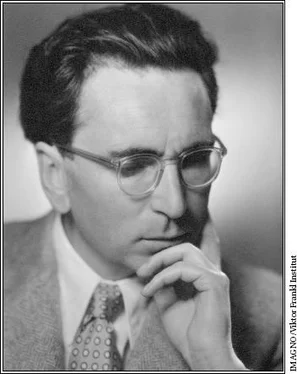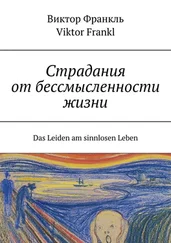Once the meaning of suffering had been revealed to us, we refused to minimize or alleviate the camp’s tortures by ignoring them or harboring false illusions and entertaining artificial optimism. Suffering had become a task on which we did not want to turn our backs. We had realized its hidden opportunities for achievement, the opportunities which caused the poet Rilke to write, “Wie viel ist aufzuleiden!” (How much suffering there is to get through!). Rilke spoke of “getting through suffering” as others would talk of “getting through work.” There was plenty of suffering for us to get through. Therefore, it was necessary to face up to the full amount of suffering, trying to keep moments of weakness and furtive tears to a minimum. But there was no need to be ashamed of tears, for tears bore witness that a man had the greatest of courage, the courage to suffer. Only very few realized that. Shamefacedly some confessed occasionally that they had wept, like the comrade who answered my question of how he had gotten over his edema, by confessing, “I have wept it out of my system.”
The tender beginnings of a psychotherapy or psychohygiene were, when they were possible at all in the camp, either individual or collective in nature. The individual psychotherapeutic attempts were often a kind of “lifesaving procedure.” These efforts were usually concerned with the prevention of suicides. A very strict camp ruling forbade any efforts to save a man who attempted suicide. It was forbidden, for example, to cut down a man who was trying to hang himself. Therefore, it was all important to prevent these attempts from occurring.
I remember two cases of would-be suicide, which bore a striking similarity to each other. Both men had talked of their intentions to commit suicide. Both used the typical argument —they had nothing more to expect from life. In both cases it was a question of getting them to realize that life was still expecting something from them; something in the future was expected of them. We found, in fact, that for the one it was his child whom he adored and who was waiting for him in a foreign country. For the other it was a thing, not a person. This man was a scientist and had written a series of books which still needed to be finished. His work could not be done by anyone else, any more than another person could ever take the place of the father in his child’s affections.
This uniqueness and singleness which distinguishes each individual and gives a meaning to his existence has a bearing on creative work as much as it does on human love. When the impossibility of replacing a person is realized, it allows the responsibility which a man has for his existence and its continuance to appear in all its magnitude. A man who becomes conscious of the responsibility he bears toward a human being who affectionately waits for him, or to an unfinished work, will never be able to throw away his life. He knows the “why” for his existence, and will be able to bear almost any “how.”
The opportunities for collective psychotherapy were naturally limited in camp. The right example was more effective than words could ever be. A senior block warden who did not side with the authorities had, by his just and encouraging behavior, a thousand opportunities to exert a far-reaching moral influence on those under his jurisdiction. The immediate influence of behavior is always more effective than that of words. But at times a word was effective too, when men- tal receptiveness had been intensified by some outer circumstances. I remember an incident when there was occasion for psychotherapeutic work on the inmates of a whole hut, due to an intensification of their receptiveness because of a certain external situation.
It had been a bad day. On parade, an announcement had been made about the many actions that would, from then on, be regarded as sabotage and therefore punishable by immediate death by hanging. Among these were crimes such as cutting small strips from our old blankets (in order to improvise ankle supports) and very minor “thefts.” A few days previously a semi-starved prisoner had broken into the potato store to steal a few pounds of potatoes. The theft had been discovered and some prisoners had recognized the “burglar.” When the camp authorities heard about it they ordered that the guilty man be given up to them or the whole camp would starve for a day. Naturally the 2,500 men preferred to fast.
On the evening of this day of fasting we lay in our earthen huts—in a very low mood. Very little was said and every word sounded irritable. Then, to make matters even worse, the light went out. Tempers reached their lowest ebb. But our senior block warden was a wise man. He improvised a little talk about all that was on our minds at that moment. He talked about the many comrades who had died in the last few days, either of sickness or of suicide. But he also mentioned what may have been the real reason for their deaths: giving up hope. He maintained that there should be some way of preventing possible future victims from reaching this extreme state. And it was to me that the warden pointed to give this advice.
God knows, I was not in the mood to give psychological explanations or to preach any sermons—to offer my comrades a kind of medical care of their souls. I was cold and hungry, irritable and tired, but I had to make the effort and use this unique opportunity. Encouragement was now more necessary than ever.
So I began by mentioning the most trivial of comforts first. I said that even in this Europe in the sixth winter of the Second World War, our situation was not the most terrible we could think of. I said that each of us had to ask himself what irreplaceable losses he had suffered up to then. I speculated that for most of them these losses had really been few. Whoever was still alive had reason for hope. Health, family, happiness, professional abilities, fortune, position in society —all these were things that could be achieved again or restored. After all, we still had all our bones intact. Whatever we had gone through could still be an asset to us in the future. And I quoted from Nietzsche: “Was mich nicht umbringt, macht mich stärker.” (That which does not kill me, makes me stronger.)
Then I spoke about the future. I said that to the impartial the future must seem hopeless. I agreed that each of us could guess for himself how small were his chances of survival. I told them that although there was still no typhus epidemic in the camp, I estimated my own chances at about one in twenty. But I also told them that, in spite of this, I had no intention of losing hope and giving up. For no man knew what the future would bring, much less the next hour. Even if we could not expect any sensational military events in the next few days, who knew better than we, with our experience of camps, how great chances sometimes opened up, quite suddenly, at least for the individual. For instance, one might be attached unexpectedly to a special group with exceptionally good working conditions—for this was the kind of thing which constituted the “luck” of the prisoner.
But I did not only talk of the future and the veil which was drawn over it. I also mentioned the past; all its joys, and how its light shone even in the present darkness. Again I quoted a poet—to avoid sounding like a preacher myself—who had written, “Was Du erlebst, kann keine Macht der Welt Dir rauben.” (What you have experienced, no power on earth can take from you.) Not only our experiences, but all we have done, whatever great thoughts we may have had, and all we have suffered, all this is not lost, though it is past; we have brought it into being. Having been is also a kind of being, and perhaps the surest kind.
Then I spoke of the many opportunities of giving life a meaning. I told my comrades (who lay motionless, although occasionally a sigh could be heard) that human life, under any circumstances, never ceases to have a meaning, and that this infinite meaning of life includes suffering and dying, privation and death. I asked the poor creatures who listened to me attentively in the darkness of the hut to face up to the seriousness of our position. They must not lose hope but should keep their courage in the certainty that the hopelessness of our struggle did not detract from its dignity and its meaning. I said that someone looks down on each of us in diffcult hours—a friend, a wife, somebody alive or dead, or a God—and he would not expect us to disappoint him. He would hope to find us suffering proudly—not miserably—knowing how to die.
Читать дальше












